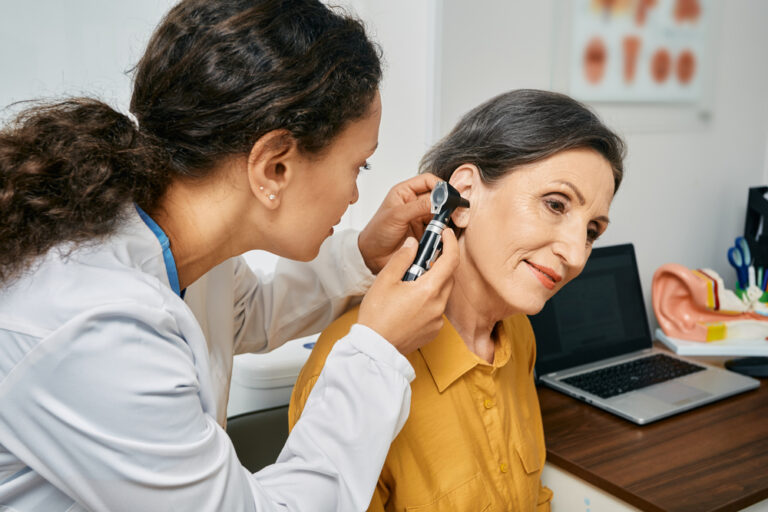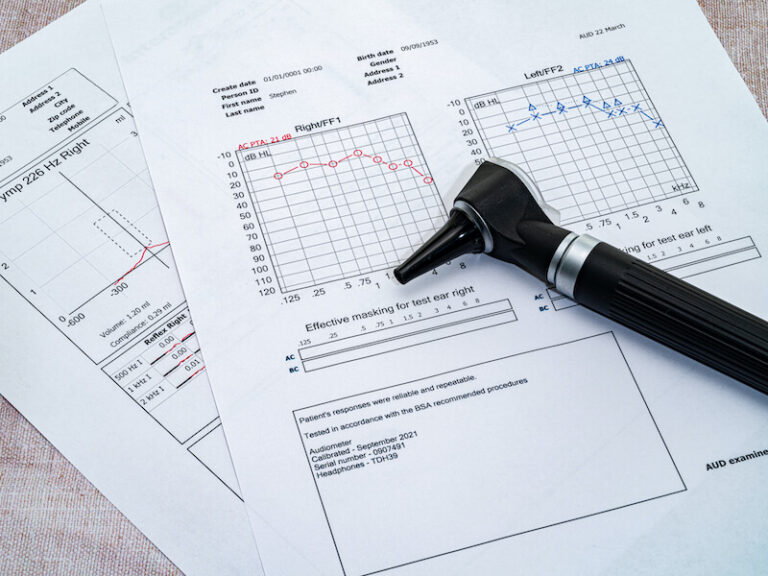Did you know that high blood pressure can also increase your chance of developing age-related hearing loss?
From about 40 years old and up, you might begin to notice that your hearing is beginning to fail. You probably won’t even notice your developing hearing loss even though it’s a permanent condition. Years of noise damage is typically the cause. So how is hearing loss caused by hypertension? The answer is that high blood pressure can lead to extensive damage to your blood vessels, including those in your ears.
Blood pressure and why it’s so significant
Blood pressure is a measure of how rapidly blood flows through your circulatory system. High blood pressure means that this blood flows more quickly than normal. Over time, this can create damage to your blood vessels. These blood vessels that have been damaged lose their flexibility and often become blocked. A blockage can result in a stroke or other cardiovascular problems. That’s one reason why healthcare professionals often pay close attention to your blood pressure.
What constitutes high blood pressure?
Here are the general ratings for high blood pressure:
- Normal: 120/8o
- Stage 1 Hypertension: 130-139/80-89
- Stage 2 Hypertension: 140 or Higher/90 or higher
A hypertensive emergency happens when your blood pressure goes over 180/120. Immediate treatment is needed when this happens.
How is hearing loss caused by hypertension?
Hypertension can cause widespread damage to your blood vessels, including the blood vessels inside of your ear. Usually, the nerves in your ear will also be compromised along with these blood vessels. Likewise, high blood pressure can negatively impact the stereocilia in your ear (the tiny hairs responsible for sensing vibrations). These stereocilia aren’t capable of self-regeneration, so any damage they incur is irreversible.
This means that damage to the ears, no matter the cause, can result in permanent hearing loss. According to some research, the percentage of individuals who have hearing loss is higher when they have high blood pressure readings. People who reported higher blood pressure were also more likely to have more extreme hearing loss. The findings of the study make clear that keeping your blood pressure under control can help you avoid the effects of hearing loss.
What does high blood pressure feel like in your ears?
Usually, the symptoms of high blood pressure are barely noticeable. So-called “hot ears” are not an indication of high blood pressure. What are hot ears? It’s a symptom where your ears feel warm and get red. Hot ears are normally caused by changes in blood flow due to hormonal, emotional, and other issues not related to blood pressure.
High blood pressure can sometimes worsen tinnitus symptoms. But how do you know if tinnitus is a result of high blood pressure? It’s impossible to definitively tell without speaking to a doctor or hearing specialist. In general, however, tinnitus isn’t a sign of high blood pressure. High blood pressure is sometimes referred to as “the silent killer” for a good reason.
The majority of people notice high blood pressure when they go in for a yearly exam and get their vitals taken. It’s a good reason to make sure you don’t miss those regular appointments.
How is high blood pressure treated?
Normally, there are various factors that contribute to high blood pressure. As a result, you might have to take several different measures and use a variety of methods to successfully lower your blood pressure. Your primary care doctor should be where you address your high blood pressure. That management may look like the following:
- Avoid sodium: Keep your eye on the amount of salt in your food, particularly processed foods. Find lower salt alternatives when possible (or avoid processed foods when possible).
- Get more exercise: Exercising regularly (or simply moving around on a regular basis) can help decrease your overall blood pressure.
- Take medication as prescribed: In some instances, high blood pressure can’t be addressed with diet and exercise alone. Although diet and exercise can be helpful, there are some cases where it will be necessary to take blood pressure medication as prescribed to control hypertension.
- Diet changes: Eating a Mediterranean diet can help you lower blood pressure. Eat more fruits and veggies and avoid things like red meat.
You and your doctor will establish a treatment plan to address your blood pressure. Can you reverse any hearing loss caused by high blood pressure? The answer depends. You may be able to rejuvenate your hearing to some degree by reducing your blood pressure, according to some evidence. But it’s also likely that at least some of the damage incurred will be irreversible.
Your hearing will have a better possibility of recovering if you address your blood pressure promptly.
Protecting your hearing
You can protect your hearing in other ways besides lowering your blood pressure. This could include:
- Wear hearing protection: Earmuff, earplugs, and even noise canceling headphones can help you safeguard your hearing.
- Avoiding loud venues and events: Try to avoid overly loud noises when you can, as these noises can result in damage to your ears. If these places aren’t completely avoidable, limit your time in loud environments.
- Talk to us: Having your hearing screened regularly can help you protect your hearing and identify any hearing loss early.
We can help you maintain your hearing into the future, so make an appointment right away.




